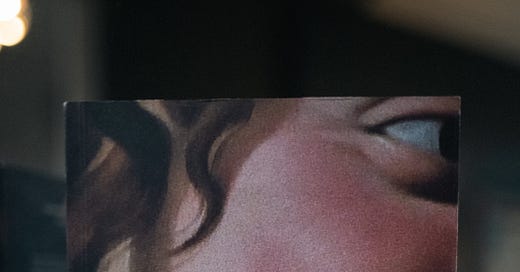The Doloriad by Missouri Williams: new bodies, new minds
How to Read and Analyse a Novel: Analysing the Role of the Body
This post is part of a course I’m currently running for paid subscribers called How to Read and Analyse a Novel—we have now moved on to reading and discussing individual books! With each book, we are taking a particular topic or theme and exploring its role in the novel; this allows for a reading which is both focussed and comprehensive, helping you hone your analytical skills. Today we are looking at the body in The Doloriad by Missouri Williams. For full introductory details and the reading list, start here. If you’d like to join but feel like you’re too late, please do—you can take this completely at your own speed, and I will continue to keep up with comments and thoughts on all the books we discuss. You can adjust your notification settings here if you would like to opt out of these emails.
Surely the extinction of humanity will not be experienced as a single event, but as a slow decline marked by the occasional cataclysmic episode. Resourceful as we are, we’re likely to cling to life for as long as possible, regardless of what it looks like. If we’re lucky, perhaps we’ll transform into something new—at least that’s what Missouri Williams posits in her debut novel, The Doloriad. And that’s not as walking-talking cyborgs, or brains in jars communing with our personal AIs; we’re talking something much more earthy, much more embodied.
On the outskirts of Prague in some post-apocalyptic future, an encampment of humans remains. Here, the Matriarch presides over her incestuous brood, as she hopes to repopulate the world in her image. But her power is beginning to wane, and her children are starting to become more and more unrecognisable to her and the old ways.
When I first read Missouri Williams’ The Doloriad I thought it was one of the most remarkable debut novels I’d read in a while. I’m happy to report on my re-read that I agree with my original assessment. This is a fully realised novel with complex themes and a prose style to match. What makes it so remarkable is Williams’ clear vision. Whilst the viscous, dense prose may obscure this for the first-time reader, it is obvious from a close reading that Williams had a complete understanding of her characters, plot, aims, and themes. This is rare for a debut novelist, particularly one who’s not writing autofiction but genuine, bona fide imaginative fiction. There’s a real confidence to this work that I admire. And well done to 4th Estate for winning the auction for her ‘satirical campus novel’, The Vivisectors. 2026 can’t come soon enough on that front.
That’s not to say this novel is going to garner a lot of fans. It is deeply strange and unsettling, and contains a lot of difficult, violent material.





